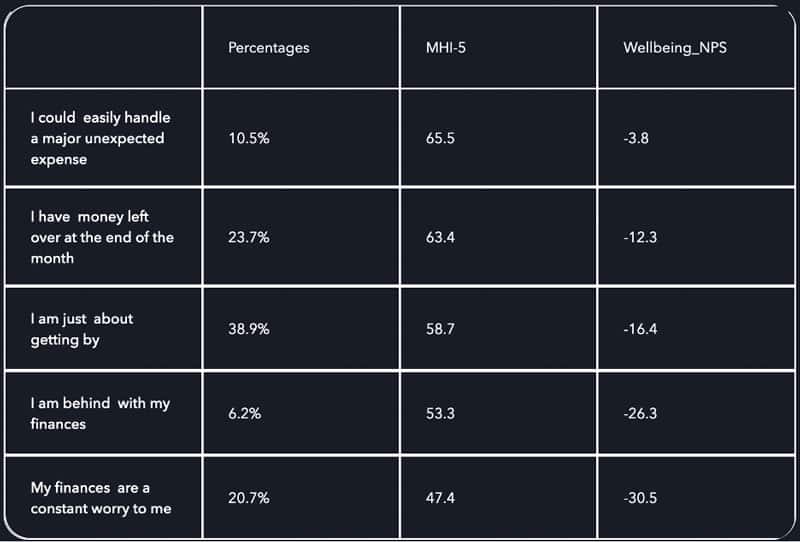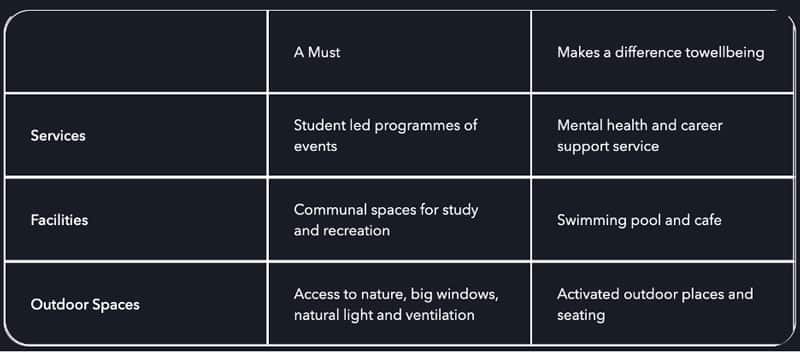Better living and social environments for students linked to better mental health
- A new report finds that loneliness is a major problem for students and has a significant effect on mental health
- Students with disabilities, non-binary students, and those experiencing financial strain are also much more likely than others to experience poor mental health
- Well-designed living spaces and amenities – as well as community supports – can make a real difference to students’ happiness
The Class Foundation’s European Student Living Monitor 2024 (SLM) report has been released, and a key finding from the survey is that many international students report mental health struggles and loneliness, and that well-designed/well-planned student housing can play an important role in mitigating that.
The SLM was launched with a goal of identifying “exactly what kind of spaces and amenities really impact students, so that the sector can optimise their portfolios to enhance student experience and success.” This is the second year of the survey, and this year it received 10,935 responses.
Most respondents to the survey (70%) live in purpose-built student accommodation (referred to as PBSA), with 20% in university-owned and managed housing.
Loneliness affects 4 in 10 students
A significant 40% of respondents said that their mental health is suffering due to loneliness. The correlation between mental health and loneliness is apparent by looking at students’ scores on the Mental Health Index (MHI-5). The good mental health benchmark score is 60. The average among all respondents was 57.8. The average among those reporting loneliness was 49.6 – a significant dip.
Of all the emotional stressors that students were asked about, loneliness was the most significant. These were the differences in mental health scores between students affected by a stressor and not affected.
- Loneliness: -13.63
- Bullying: -10.1
- Discrimination: -11.42
- Relationships (family, friends, work, etc.): -10.19
- Knowing where to find support: -10.11
- Having confidence to do the things I want: -9.57
Students need more help with connection
The report notes:
“There has been an increase in the number of students struggling with relationships (including making new friends). This are all understandable in the context of going to university to a new place, but these are ongoing major pressures which contribute to the happiness and living experience in general. Knowing where to turn for support is a challenge for many students, and universities and operators can play a critical role by actively guiding and connecting students to the right resources, thereby significantly improving their living experience.”
The relationship between living spaces and mental health
Another important segmentation was to see how students who have access to “well-designed communal spaces, organised events, and outdoor areas” scored compared to others. Those students’ average MHI-5 scores were over 60. The report notes as well that “It is simply not enough to have these spaces but also them correctly activated.”
Financial difficulties take a toll
Among students struggling with financial stress, the average MHI-5 score was 47.4 – even lower than the average score of students reporting loneliness and 18 points lower than students for whom finances are not an issue. The SLM suggests that “the creation of more hardship funds and affordable housing incentives for investors and developers.”

Some groups suffering more than others
Non-binary students and students with disabilities also reported poorer mental health (48.8 and 45.8, respectively).
Women (56.3) reported more mental health struggles than men (61).
There was little difference between international students (58.9) and domestic students (57%), though the former were slightly happier.
Key supports for students
The report provides the following chart indicating what kinds of supports are most conducive to student well-being. Student-led programmes of events; communal spaces for study and recreation; and access to nature, big windows, natural light, and ventilation are “musts,” according to the report.

A call to action
Kelly-anne Watson, Managing Director of The Class Foundation, writes:
“Our findings make it clear: student happiness is deeply connected to where and how they live. This report is a call to action for us all to build environments that do more than just house students; they should actively contribute to their positive experience, make them feel supported, and help foster a strong sense of community.”
For additional background, please see:
- ICEF Accommodation: The world’s first-ever agent networking event where providers of student accommodation and related services meet with international student recruitment professionals.
- “ICEF Podcast How student accommodation crises are affecting international education”
















